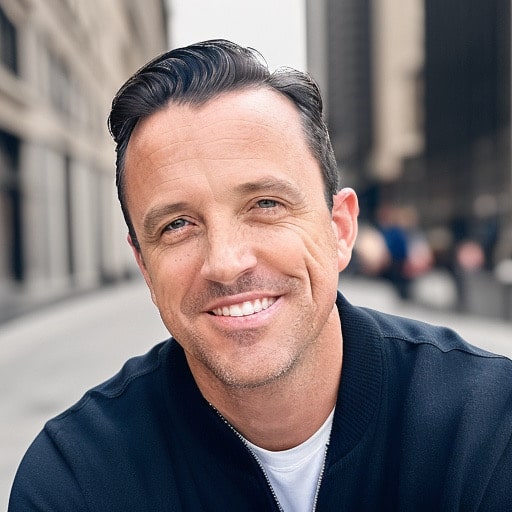Brad Pitt; Google’s 2 team lessons; Coca-Cola’s design; Panama, Guatemala next week
February 26, 2016Buffett’s 3 Leadership Lessons; His Prosperity Blueprint; Lean HQ; Amsterdam, Berlin, Barcelona
March 3, 2016How Free and Inexpensive Technology Put One Company’s Scale-Up on the Fast Track
Vyral Marketing doubled its size in one year to 60 employees and hit $3 million in revenue by embracing inexpensive technology such as Google Hangouts and Slack to improve team-wide communication.
Frank Klesitz knew something had to change when the CEO found himself yelling at his team as he embarked on the scale-up of his company, Vyral Marketing. Klesitz, 30, lives in San Diego, but the vast majority of its employees are based in Omaha, Nebraska. Communication was starting to break down as Vyral Marketing grew from a handful of people who knew each other well to a larger group. It quickly dawned on Klesitz that he had to run the fast-growing company like the organization it was. “Being in San Diego really forced me to get strategic,” says Klesitz.
By adding a layer of digital technology to drive communications, Klesitz managed to turn things around and achieve an elusive goal for many: scaling a professional services firm. The tiny company he co-founded in 2009 has grown to about 60 employees — doubling its staff in 2015 — and $3 million in revenue. Meanwhile, Klesitz still lives more than 1,600 driving miles away, where he can focus on strategy and stay out of the weeds.
So how did Klesitz pull it off? First, he realized early that he had to lay the right foundation at the firm, where most of the employees come on board right out of college and start out in jobs that pay $10 to $12 an hour. “We got our systems in place immediately so we didn’t have to retroactively put them in place and fight the culture,” he says.
Digital Daily Huddles
One key element of an effective communication routine is the daily huddle, something Klesitz first became familiar with through a business contact in 2013 who recommended he read Mastering the Rockefeller Habits. That is the book where I first described the system for scale-ups, which I updated in my recent release, Scaling Up (Rockefeller Habits 2.0). Daily huddles are short meetings where every department and team in his company discusses key issues verbally, saving hours of time.
Given Klesitz’s location in San Diego, Viral Marketing’s team uses Google Hangouts for these gatherings. The second Tuesday of every month at 8 am CST, the entire team convenes for an all-hands-on-deck meeting. For these larger videoconferences, Vyral Marketing invested in a $150 Chromebox computer that is hooked up to a $200 TV. The whole office in Omaha gathers around the TV and can meet face to face with the five people in San Diego. Slack, the mobile messaging app, helps Klesitz stay connected on a day-to-day basis. The company has set up channels where team members can share ideas in a transparent forum. To avoid playing catch-up at monthly meetings, Klesitz reads everything on the Slack channels. “It’s transparent communication,” he says.
Success Coaches
To keep growth on track, Vyral Marketing assigns every employee an adviser. A member of the company’s executive team meets one-on-one each week with each of the 11 account managers, where they set a monthly goal together and discuss what the account manager has to accomplish that week and that month to achieve the goal. The company has, in turn, trained its 11 account managers to act as “success coaches,” who advises their direct reports on career growth. The most important key performance indicator at the firm, says Klesitz, is the frequency of communication with clients. Every account manager has 43 clients and is expected to call each of them once a week to give them a verbal update on the progress of their marketing plan. In addition, the firm’s chief operating officer calls eight clients each day, so the account managers’ feedback is not the only information the firm has about how these relationships are going. “If clients are talking to us, they are not talking to anybody else,” says Klesitz.
One Quarterly Focus
Under Vyral Marketing’s One-Page Strategic Plan (OPSP), another Rockefeller Habits 2.0 tool, the company offers a single marketing program to each client — a factor that has greatly simplified operations and allowed the company to scale quickly. To keep everyone on track, Klesitz has embraced the idea of quarterly themes, where the company focuses on a single main goal every quarter. For instance, one recent quarterly focus was selling more high-end services, such as Facebook and YouTube advertising, as add-ons to the main marketing program. To support that priority, Vyral Marketing’s team focused on becoming extremely adept at paid advertising that quarter. The company ultimately enrolled 30 clients in a $500-per-month YouTube and Facebook advertising program. A current goal is to offer on-site video production for clients in the company’s Omaha office. “We focus on one premium service at a time,” says Klesitz.
This approach requires Klesitz to exercise discipline as a leader. When he has new ideas for the company, he jots them in a notebook to be shared at the monthly all-hands Google hangout, so the team stays focused on the company’s one quarterly goal. “If I start writing an email or typing the ideas on Slack, it would confuse everybody,” says Klesitz.
Weekly Employee Surveys
To keep his finger on the pulse of the company’s culture, Klesitz uses Google Forms, a free technology, where the company sends out a weekly anonymous email poll with a single question. One recent question: How are we doing on raising your income at Vyral Marketing? “We answer all concerns on Slack to the company,” says Klesitz.
Vyral Marketing also recently encouraged all of its employees to post anonymous reviews on the job board Glassdoor — “good or bad,” says Klesitz — promising to take everyone out for the evening if it hit 44 — a goal it achieved. “I personally responded to each of the reviews,” he says. Potential hires who come to Vyral Marketing’s website get a taste of its culture in 20 interviews with employees on Google Hangouts that it recorded with team members and transcribed last year — and to which it continues to add. “You can learn all about the people who work here and why they work here,” says Klesitz.
By using technology to customize the Scaling Up system, Klesitz is off to a promising start on his vision of becoming the most influential professional services firm in the world serving 10,000 clients. And for the time being, he can enjoy the benefits of running his company remotely as it scales from its present 450 clients. “I’ve completely exited the day to day,” he says. That’s something many CEOs only wish they could say as they embark on their scale-ups.



